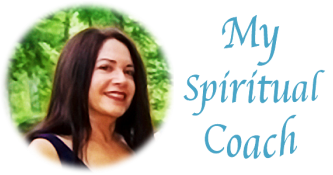The symbols are for good luck: For financial gain and survival. If I have a statue of Shiva, I will attract all the good stuff I want in life. I want to look cool and enlightened, so I will dress this way to send the signal. The spiritual-sounding terms have become slang and over-inflated, as have the words, “epic,” and “awesome.” “This pizza is awesome!”
I participated in very few conversations involving the nature of consciousness. or anything other than body maintenance, house maintenance, dog and pet maintenance, politics, and health practices such as exercise or food. Politics was a big topic for many people. Very few people showed even an interest in deep contemplation of the Source Energy of the Universe, cosmology, or metaphysics.
I say I was surprised to find that California was a spiritual wasteland because it had been the womb of so many spiritually advanced movements: From introducing Yogananda and the practice of yoga to the US, to the obviously spiritually-oriented sixties and such luminaries as Alan Watts. I was expecting to find people sitting around in Berkeley, strumming guitars and singing Kumbaya. What I found was the devastation of homelessness and the hopelessness it represents on many of the streets, including of course, in Los Angeles and San Francisco. It is hopelessness that hangs in the air, rather than spiritual upliftment.
These are overall impressions and experiences gathered over the five years I lived there. I had relationships of the heart that I will always hold dear. And many people expressed kindness and love. But spirituality, no. Talk about meditation and yoga, yes. But these are practices to get something. They are to get fitter, look better, get peaceful, or have some me-time. The core of why they came into being has been lost. For example, the flocks of people who go to whatever yoga is big at the time. It’s all about what’s popular and what feels good to the “little me.”
The “little me” in California is also running scared about aging and any bodily flaws or perceived imperfections. Therefore, time that could be used for understanding who we are as eternal Souls, is spent on getting every possible body part fixed so we can fool ourselves that we will never die. Or we can display to others how we have it all together, when in fact we are terrified.
As for the rest of the nation, spiritually conscious beings exist in every state. They may not make a big display of it and they live quietly or even boisterously. They may not belong to a group, which at base has nothing to do with spirituality and much to do with conditioning, fear, and the need for structure. But, in general, the entire world consists of over 8 billion people, all striving to stay alive. We are not at the stage in our evolution for world-wide understanding of our inner being and its connection to All That Is. The state of the world of humans is a testimony to this.

 RSS Feed
RSS Feed